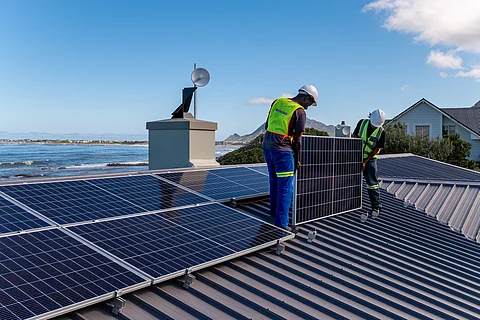

African leaders united in Dar es Salaam, Tanzania on January 28, 2025 to confront one of the continent’s most pressing challenges — energy poverty. With over 600 million Africans still without electricity, the Dar es Salaam Energy Declaration, adopted at the Mission 300 Africa Energy Summit, signals a major step toward a unified strategy for sustainable electrification.
The summit, attended by 21 presidents and senior representatives, also saw the adoption of 15 key resolutions. The discussions underscored the urgent need for policy reforms to attract investment into Africa’s energy sector, with a focus on clean cooking energy and renewable solutions.
African Development Bank (AfDB) Secretary-General Vincent Nmehielle, while reading the summit’s declaration, commended Tanzanian President Samia Suluhu Hassan for hosting the summit and advocating for clean cooking.
He also recognised the World Bank and AfDB for their significant contributions to Africa’s energy transformation, alongside the leadership of the African Union.
Despite these efforts, nearly a billion Africans remain without clean cooking energy. “We need coordinated plans, such as an energy compact, to ensure implementation by 2025,” Nmehielle stated. He also stressed the importance of partnerships and financial mobilisation to support the Agenda 300 initiative, aimed at providing electricity to 250 million people.
However, beyond the pledges and aspirations, challenges remain. In an interview with Down To Earth, Haji Semboja, economics professor with the Zanzibar University, raised concerns about the practicality of the initiative. “This is a bold document, but ambition alone won’t generate electricity,” he said. “Where is the money? Where is the infrastructure?”
A key obstacle to achieving the goals of the declaration is financing. Semboja also pointed out that many African nations struggle with debt. “Governments are betting on private investors, but investors need guarantees,” he noted. He also emphasised the need for stronger governance to instill confidence in potential investors.
The summit's emphasis on renewables — solar, wind and hydropower — was met with cautious optimism. While these energy sources hold vast potential, Semboja warned that Africa’s existing infrastructure may not be ready to handle a large-scale transition. “We need transmission lines, storage facilities, skilled engineers — are we ready for that?” he asked.
Another focal point of the summit was regional cooperation. Strengthening interconnections between national power grids could lower energy costs and enhance security. However, Semboja remained skeptical. “Regional integration sounds nice, but every country prioritises its own energy needs,” he said. “Past power-sharing agreements have failed due to politics. Can we trust each other this time?”
Despite his reservations, Semboja acknowledged that the summit marked a significant step forward. “Energy is the backbone of development. If we get this right, Africa can move beyond survival into prosperity,” he concluded, but cautioned, “We cannot afford another empty promise.”
Leaders also emphasised the importance of private sector involvement. Wale Shonibare, director of energy financial solutions at AfDB, highlighted the need for transparent regulatory frameworks to attract investment.
Financial commitments from multilateral lenders, including $48 billion from the World Bank and AfDB, reflect growing optimism, although experts stress the importance of addressing policy bottlenecks and infrastructure deficits.
With climate change concerns mounting, the push for renewables will be central to Africa’s energy future. Seleshi Bekele, Ethiopia’s Minister of Energy, emphasised the continent’s vast solar, wind and hydropower potential. However, challenges like high upfront costs, inadequate storage and weak grid infrastructure must be addressed to fully harness these resources.
The summit also featured contributions from civil society and youth leaders, stressing the importance of inclusive energy policies. As the summit closed, President Hassan delivered a stirring call to action: “The world is watching. Together, we can light up Africa and unlock its limitless potential.”
The African Union Summit is set to adopt the Dar es Salaam Energy Declaration in February.